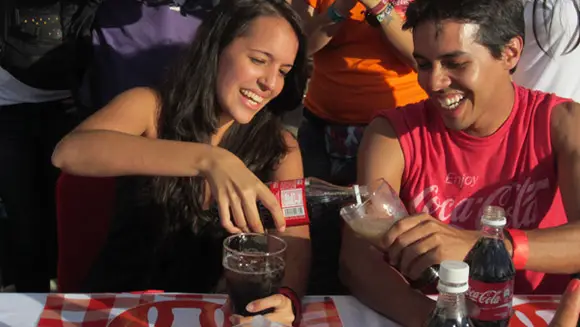
Wanting to celebrate the strength of family in Venezuela, Coca-Cola desired a way to allow families a symbolic representation of staying united in the face of any changes or obstacles sent their way.
As such, engaging with Guinness World Records, the iconic soft drink brand was handed a completely new record challenge that could be broken only by a unified group. In order to make history, Coca-Cola would need to get hundreds of people to perform the longest drinks pouring relay.
In order to give the record a go, each person in the relay had to cleanly pour a beverage for the person next to them, on and on down the chain.
Coca-Cola went so far as to create a 597-foot-long (182-meter) in the form of its famous contour-shaped bottle. The table allowed enough room for plenty of people to join the relay. When all the fizz settled, a new record of 550 participants had been set.

After the attempt, all participants remained gathered around the table to enjoy a typical Venezuelan lunch.
"This activity, fresh and engaging, gave us the possibility to show that when we gather to even eat a meal together, we become something bigger than ourselves," said Jeremy Romero, Coca-Cola brand manager for Venezuela. "This was the intention of working with Guinness World Records; if we were able to get people to reflect on that feeling, then we're happy."
The attempt highlighted a banner time in Venezuela. On the same day that Ms. Venezuela was crowned Ms. Universe, it was the Coca-Cola record that was the No. 1 trending topic in the country on Twitter, under the hashtag #UnRecordJuntos (a.k.a. "One record together").

The successful attempt marks the first time Coca-Cola has ventured into the Venezuelan market to break a record. Not knowing exactly what they wanted to attempt, Coca-Cola took advantage of the Guinness World Records creative consultancy service to create and narrow down a list of potential record ideas. Deciding in the end to go for an accomplishment centered on a group gathering around a table was no accident.
"The table invites dialogue and interaction," said Romero. "It gives us identity, a feeling of importance, and protection."
